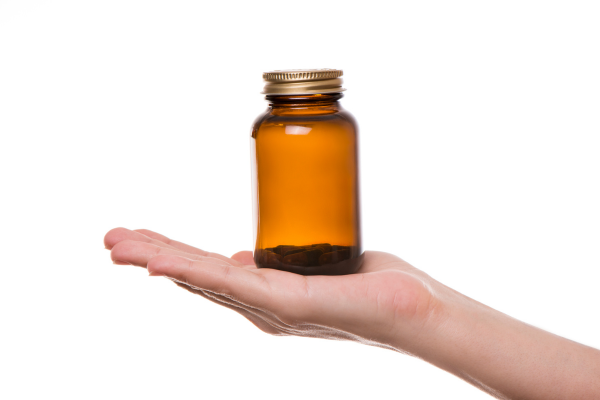Last Updated on April 22, 2023 by Lisa Vargas
There are so many different things that can happen and no one knows exactly what that will be, but we are all here trying to be prepared for anything that comes our way. Hurricanes, earthquakes, floods, and pandemics can strike at any moment. When these disasters occur, people often scramble to gather food, water, and other essential supplies. But what about medicine? Unfortunately, illnesses don’t care about disasters. They’ll keep coming at you regardless of whether or not you’re in an emergency situation.
During emergencies, access to medical care and prescriptions can be limited. Roads may be blocked, hospitals may be overwhelmed, and pharmacies may be closed. That’s why it’s essential to take into consideration that when disasters hit, there won’t be access to the same level of medical care or prescriptions. This means that you need to be prepared to take care of yourself and your family.
With that said, how do you store antibiotics long term? Today we are going to answer that question and find out what you need to do so that if a SHTF scenario happens, you will be well stocked and ready.
How Do You Store Antibiotics Long Term?

One crucial aspect of emergency preparedness is storing antibiotics. Antibiotics are a class of drugs used to treat bacterial infections. They are essential in preventing and treating a wide range of illnesses, including sinus infections, urinary tract infections, and strep throat.
In a disaster, they can be lifesaving. But how do you know which types of antibiotics to stock up on and how long they will be good for? Let’s take a look below.
7 Antibiotics to Stock Up On
Here are the 7 best antibiotics that preppers should stock up on if possible. These will be extremely important to have during any scenario where you can’t get access to regular medical care. If you can’t get all seven, try to get as many as you can. Some may be harder than others to get access to.
- Sulfamethoxazole (400mg)
- Amoxicillin (250mg and 500mg)
- Metronidazole (250mg)
- Ciprofloxacin (250mg and 500mg)
- Ampicillin (250mg and 500mg)
- Cephalexin (250mg and 500mg)
- Doxycycline (100mg)
How To Get Extra Antibiotics

There are a few things you can do to try and get extra stock of antibiotics. Getting extra from your doctor is naturally something you will want to do, but surprisingly, you can also try and get some antibiotics from your veterinarian.
Getting extra from your family doctor
As a prepper, it’s important to have a stockpile of antibiotics for emergencies, especially during a grid-down situation where access to medical care may be limited. While asking your doctor for extra meds is an option, it’s not guaranteed, and depends on your doctor’s willingness to prescribe extra medication. This can be the tricky part.
When talking to your doctor about getting extra antibiotics, be upfront and explain your concerns about access to medical care during emergencies or your history of recurring illness. It’s crucial to follow your doctor’s instructions when taking antibiotics, and to use them only when necessary to prevent antibiotic resistance.
It’s also important to have backup strategies for obtaining antibiotics for long-term storage, such as purchasing them from a veterinarian’s office or a mail-order pharmacy, which we will talk about next.
Remember that not all doctors may be willing to prescribe extra medication, and it’s important to be respectful and understanding of their decision. In the end, the safety and effectiveness of antibiotics should always come first.
Buying Human Antibiotics from Veterinarian's Office
Some preppers are buying the equivalent of human antibiotics right off the shelf in their local veterinarian’s office. You don’t need a prescription to get this medication, and it can be a great backup plan if you’re unable to get your hands on prescription antibiotics.
It’s important to note that some medications prescribed to animals are the same ones given to humans. Amoxicillin, for example, can be found under the name fish-mox forte. The bottle clearly labels itself as amoxicillin, so you don’t have to worry about any confusion.
Doxycycline can be found as bird biotic. These medications can be just as effective as their human counterparts, and they can be a lifesaver in an emergency. Animal medications used for humans has long been discussed for many, many years. You can find one of them here regarding bird biotic.
Expiration Dates

One thing to keep in mind is that expiration dates on medication are not always accurate. Just because a medication has passed its “use by” date doesn’t mean that it’s no longer effective. In fact, most medications can last a couple of years past that use by date. However, to be viable, you need to store them properly.
In fact, most medications can last a couple of years past their expiration date if stored properly. However, to be viable, you need to store them properly. Heat can render an antibiotic useless, so it’s important to store antibiotics in a cool and dry place. If antibiotics are not stored properly, they can lose their potency and effectiveness.
Use By Dates vs. Expiration Dates: What's The Difference?
When it comes to medication, it’s important to understand the difference between expiration dates and “use by” dates. While these terms may seem interchangeable, they actually have different meanings.
Expiration dates refer to the date when a medication may start to lose its potency and effectiveness. These dates are required by law and are typically set by the manufacturer. After the expiration date has passed, the medication may not be as effective as it once was, but it doesn’t necessarily mean that it’s unsafe to use.
On the other hand, “use by” dates refer to the date when a medication may become unsafe to use. These dates are typically set by the pharmacy or healthcare provider and are used to ensure the safety of the medication. After the “use by” date has passed, the medication may not only be less effective but could also potentially be harmful to use.
It’s important to note that not all medications have “use by” dates. Some medications may only have an expiration date, while others may have both. Additionally, the length of time between the expiration date and the “use by” date can vary depending on the medication.
While both expiration dates and “use by” dates are important to consider, it’s important to use your own judgment when deciding whether or not to use medication. Just because a medication has passed its expiration date doesn’t mean that it’s no longer effective.
However, it’s essential to be cautious and check the medication’s physical appearance and consult with a healthcare professional if you’re unsure about its safety.
It’s also important to note that proper storage and usage can help extend the life of medication. Storing medication in a cool, dry place can help prevent it from degrading and losing its effectiveness. Additionally, using medication only as directed can help prevent unnecessary waste and potentially harmful side effects.
It’s essential to note that expiration dates on medications are required by law. Manufacturers are required to put a date on the medication, but that date doesn’t necessarily mean that the medication will expire on that day.
The expiration date is more of a guideline, and it’s important to use your own judgment when deciding whether or not to use expired medication. But here’s some more details.
How to Tell If Your Medication Is Still Good
If you’re unsure whether a medication is still effective, there are a few things you can do to determine its viability. One way is to check the medication’s physical appearance. If the medication looks different than it did when you first got it, it may have degraded and lost its effectiveness. Additionally, if the medication smells different or has a different taste than it did before, it may no longer be effective.
Another way to check the viability of medication is to consult with a healthcare professional. They can help you determine whether the medication is still effective or if it’s time to dispose of it. If you’re unsure about the safety of expired medication, it’s always best to err on the side of caution and dispose of it.
Proper Storage of Antibiotics

There are several things to keep in mind when properly storing antibiotics long term such as what type of container, light exposure, and temperature. Let’s look at those things in a little more detail below.
Storage Containers
When it comes to long-term storage of antibiotics, you will need to use the right containers to help preserve their potency and effectiveness. The best containers for storing antibiotics are airtight, opaque, and moisture-resistant, which happens to be the original containers they were most likely packaged in.
Another option for storing antibiotics is using vacuum-sealed bags or containers such as mylar bags. These bags and containers are designed to remove all the air from the package, which helps to prevent oxidation and degradation of the medication. They’re also airtight and moisture-resistant, which helps to keep the medication fresh and effective.
Make sure to avoid using plastic containers for long-term storage of antibiotics. Plastic containers can leach chemicals into the medication, which can degrade the medication’s potency over time. Additionally, plastic containers are not airtight and can allow moisture and air to enter, which can also degrade the medication.
Ultimately, the best way to store your antibiotics is the original container that they came in and make sure to take the cotton balls out because they can attract moisture.
Light Exposure
Light exposure is an important factor to consider when storing antibiotics. Exposure to light can cause certain antibiotics to break down and lose their effectiveness over time. This is because light can cause a chemical reaction that breaks down the active ingredients in the medication.
Many antibiotics are sensitive to light, particularly those in the tetracycline and fluoroquinolone families. These antibiotics should be stored in opaque containers to protect them from light exposure.
Some antibiotics come in opaque packaging to begin with, but if you’re transferring medication to a new container for storage, it’s important to choose an opaque container.
Temperature
Temperature is a critical factor to consider when storing antibiotics long term. Most antibiotics are sensitive to temperature and can degrade quickly if stored improperly. This can result in a loss of potency, making the medication less effective or even ineffective.
In general, antibiotics should be stored at a temperature between 59 and 77 degrees Fahrenheit to maintain their effectiveness.
If you don’t store antibiotics in the right temperature, it can break them down and they can lose their effectiveness. For example, storing antibiotics at temperatures above 86 degrees Fahrenheit (30 degrees Celsius) can cause them to break down rapidly, making them ineffective.
Similarly, storing antibiotics at temperatures below freezing (32 degrees Fahrenheit or 0 degrees Celsius) can cause them to freeze, which can also degrade their effectiveness.
Where To Store Your Antibiotics
You may think that storing your antibiotics in your bathroom is a good place to keep them, but in reality it’s not. Storing them in the bathroom can be problematic because it allows moisture from the steam of the shower, bath, or sink to seep into the bottles.
A better place may be in your pantry or a dark closet in your room at room temperature.
Frequently Asked Questions About Storing Antibiotics

How long can you store antibiotics?
The shelf life of antibiotics can vary depending on the type and how they are stored. In general, most antibiotics have a shelf life of 1-3 years. It’s important to check the expiration date on the label and properly store them in a cool, dry, and dark place to ensure their potency. And believe it or not, antibiotics can last for many years after their original shelf life.
Can you freeze antibiotics to make them last longer?
Freezing antibiotics is not recommended as it can cause them to degrade and lose their effectiveness. Instead, antibiotics should be stored in a cool, dry, and dark place away from sources of heat and light.
Should I vacuum seal antibiotics?
Vacuum sealing antibiotics can be a good way to protect them from moisture and other contaminants. However, it’s important to use vacuum sealing bags or containers specifically designed for storing food or medication.
Is it OK to take old antibiotics?
According to prescriptionhope.com, there are studies that are being done that show that if antibiotics are stored properly, they will remain 90% potent and should be ok to take, even past their expiration date.
Is amoxicillin still good after 2 years?
The effectiveness of amoxicillin can diminish over time, but it can still be effective up to 2-3 years past the expiration date if properly stored. At the same time, it’s not recommended that you take amoxicillin after the 2-3 years, simply because the potency is no longer good.
Are you supposed to refrigerate antibiotics?
Some antibiotics may need to be refrigerated, while others may be more stable at room temperature. It’s important to check the label or consult with a healthcare professional or pharmacist to determine the best storage conditions for a particular medication.
Key Take Aways

Storing antibiotics long term requires proper storage conditions to maintain their potency and effectiveness. Some key takeaways include:
Knowing which antibiotics to store, where to get them, and how to store them properly can make all the difference in an emergency.
Antibiotics should be stored in a cool, dry place away from sources of heat and light.
The best containers for long-term storage of antibiotics are airtight, opaque, and moisture-resistant.
Light exposure can cause certain antibiotics to break down and lose their effectiveness, so it’s important to store antibiotics in opaque containers.
Expiration dates on medications are not always accurate, but it’s still important to use your own judgment when deciding whether or not to use expired medication.
If you’re unsure about the safety of expired medication, it’s always best to consult with a healthcare professional.
By following these guidelines, you can help ensure that your antibiotics remain effective for as long as possible, which can be crucial in emergency situations where access to medical care may be limited.
